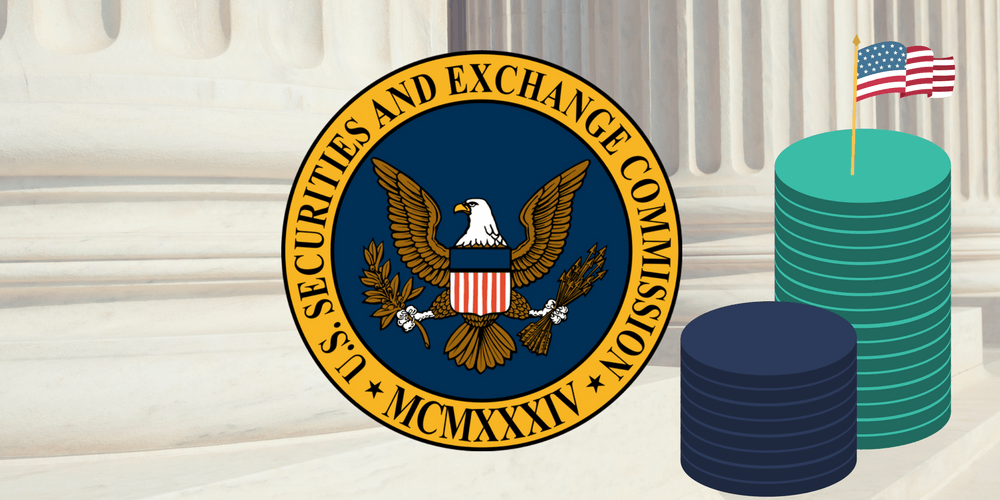
In a hearing held Thursday by the Capital Markets, Securities, and Investments Subcommittee of the U.S. House Committee on Financial Services, William Hinman, the Director of the Securities and Exchange Commission’s Division of Corporation Finance, said, “[My] division has also been focusing attention on digital assets and on Initial Coin Offerings. As this area continues to evolve, we are striving for a balanced approach, and one that ensures capital formation while maintaining a strong focus on investor protection.”
This hearing was entitled “Oversight of the SEC’s Division of Corporation Finance,” and one of the central topics of the hearing was the significant decrease in Initial Public Offerings (IPOs) in recent years. Rep. Bill Huizenga (R-Minn.) asked Mr. Hinman if he believed that ICOs could serve as a viable alternative to IPOs, and what the regulatory status of these offerings should be.
Mr. Hinman responded, “The issues around whether a particular coin offering may involve an offering of a security are somewhat complex… an instrument that may be called a coin may still have the hallmarks of a security and need to be regulated as such.”
Rep. Huizenga then asked Mr. Hinman if he could think of an instance in which a coin offering would not constitute the offering of a security, to which Mr. Hinman responded, “In theory, there is a time when a coin may achieve a sort of decentralized utility in the marketplace. There are some coins where you wouldn’t have an issuer to regulate…. In theory, there may be coins where that lack of a central actor would make it difficult to regulate… as a securities offering.”
Rep. Brad Sherman (D-Calif.), infamous in the crypto space for his hostility towards digital assets in a previous hearing, took issue with Mr. Hinman’s “balanced approach,” and the notion that ICOs could be a suitable replacement for IPOs. Rep. Sherman claimed that ICOs have the effect of taking money out of the real economy, hindering job creation and economic growth. The Congressman also claimed that due to the lack of investor protection and the lack of quantifiable economic output in an ICO, it would be impossible to create a balanced ICO system.
Rep. Sherman then asked Mr. Hinman why the SEC had not completely banned ICOs as unregulated investments, to which Mr. Hinman responded that by taking a balanced approach to ICOs, the SEC was acknowledging the potential of blockchain technology.
Rep. Sherman then clarified, “I’m not saying ban blockchain—just ban the ICOs,” to which Mr. Hinman responded, “Some folks are finding that the ICO instrument allows for a different type of enterprise, one that’s more decentralized and which they think has some value.”
Rep. Sherman then interrupted Mr. Hinman to say, “Charlatans and scammers have always favored decentralized new enterprises.”
Rep. Tom Emmer (R-Minn.), known in the crypto space for his positive outlook on and hands-off regulatory recommendations for blockchain innovations, rebutted Rep. Sherman’s claims by saying, “People tend to fear what they don’t know… the typical attitude that I get from so many elected officials who have no idea what they’re talking about… is that everyone who is involved [in the area those officials don’t understand]… is either bad or dishonest…. There’s a lot of ignorance about [Initial Coin Offerings and blockchain technology].”
While Rep. Emmer’s comments were not explicitly directed at any one member of the subcommittee, it is obvious that he was calling out Rep. Sherman. These two congressmen have butted heads over digital asset regulation before, at a previous Capital Markets Subcommittee hearing focused entirely on cryptocurrency and ICOs.
As the legislative conversation about digital assets continues, it is likely that this topic will prove to be very politically polarizing, with many officials joining either Rep. Sherman in decrying the evils of this emerging industry, or Rep. Emmer in advocating for laissez-faire regulatory policies.
Ultimately, however, what will be necessary for blockchain technology and digital assets to further achieve mainstream usage is for elected officials to approach the regulation of this emerging asset class in the balanced style recommended by Director Hinman.
Rather than hotly debating whether or not to regulate the crypto-economy, officials should be working together to ensure that sensible regulations are put in place which preserve and reward ingenuity and entrepreneurship while simultaneously protecting investors and preventing crime and fraud.

